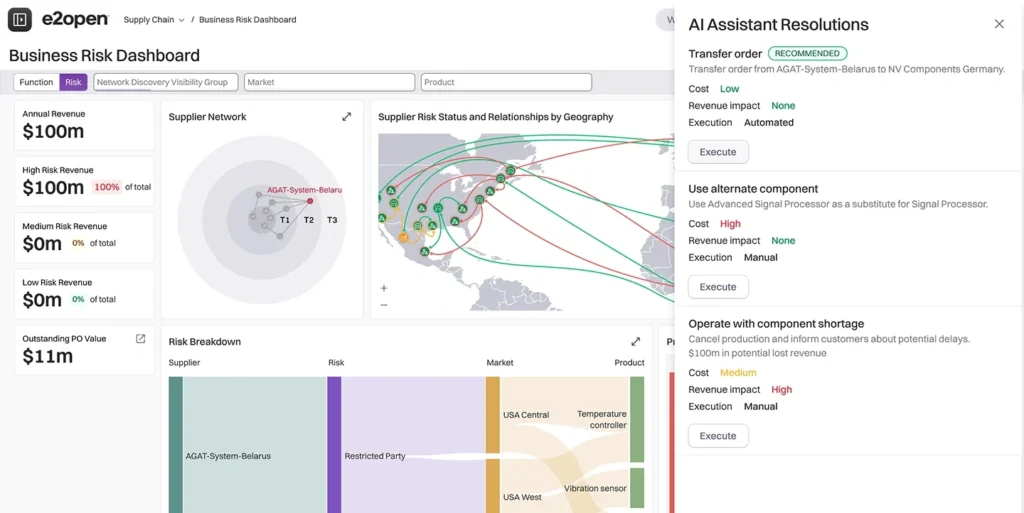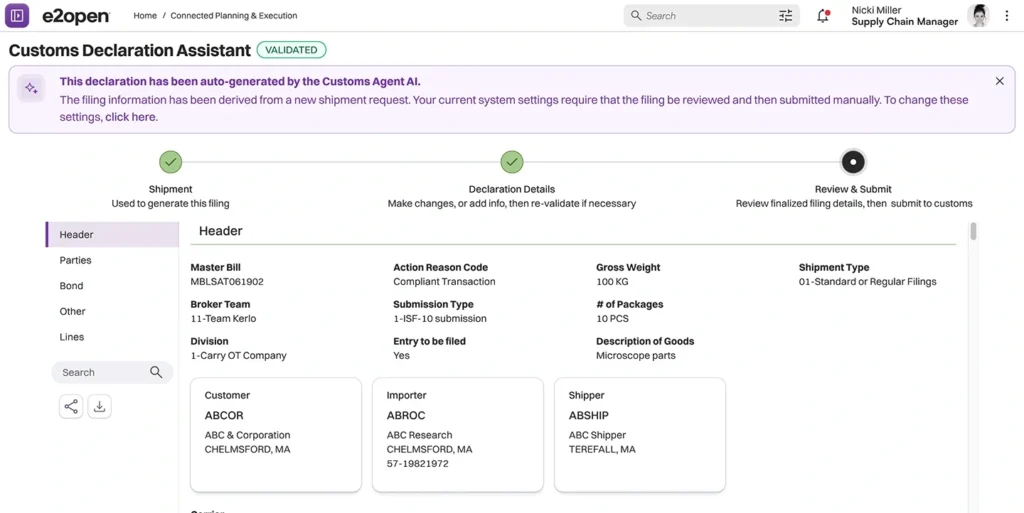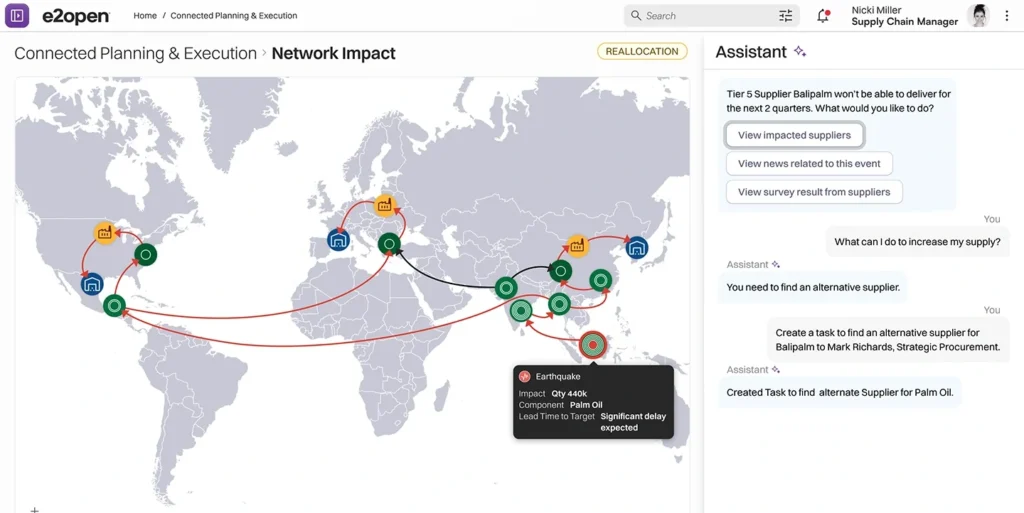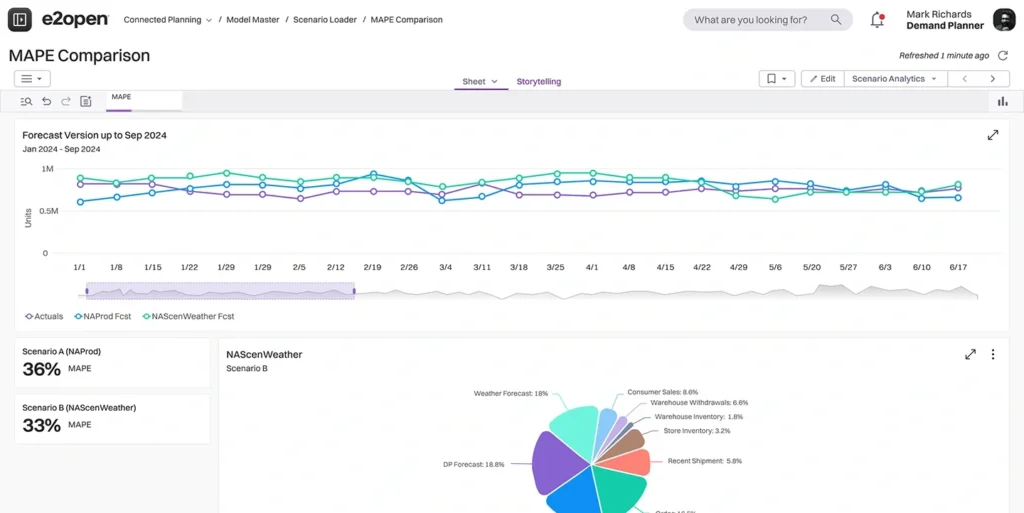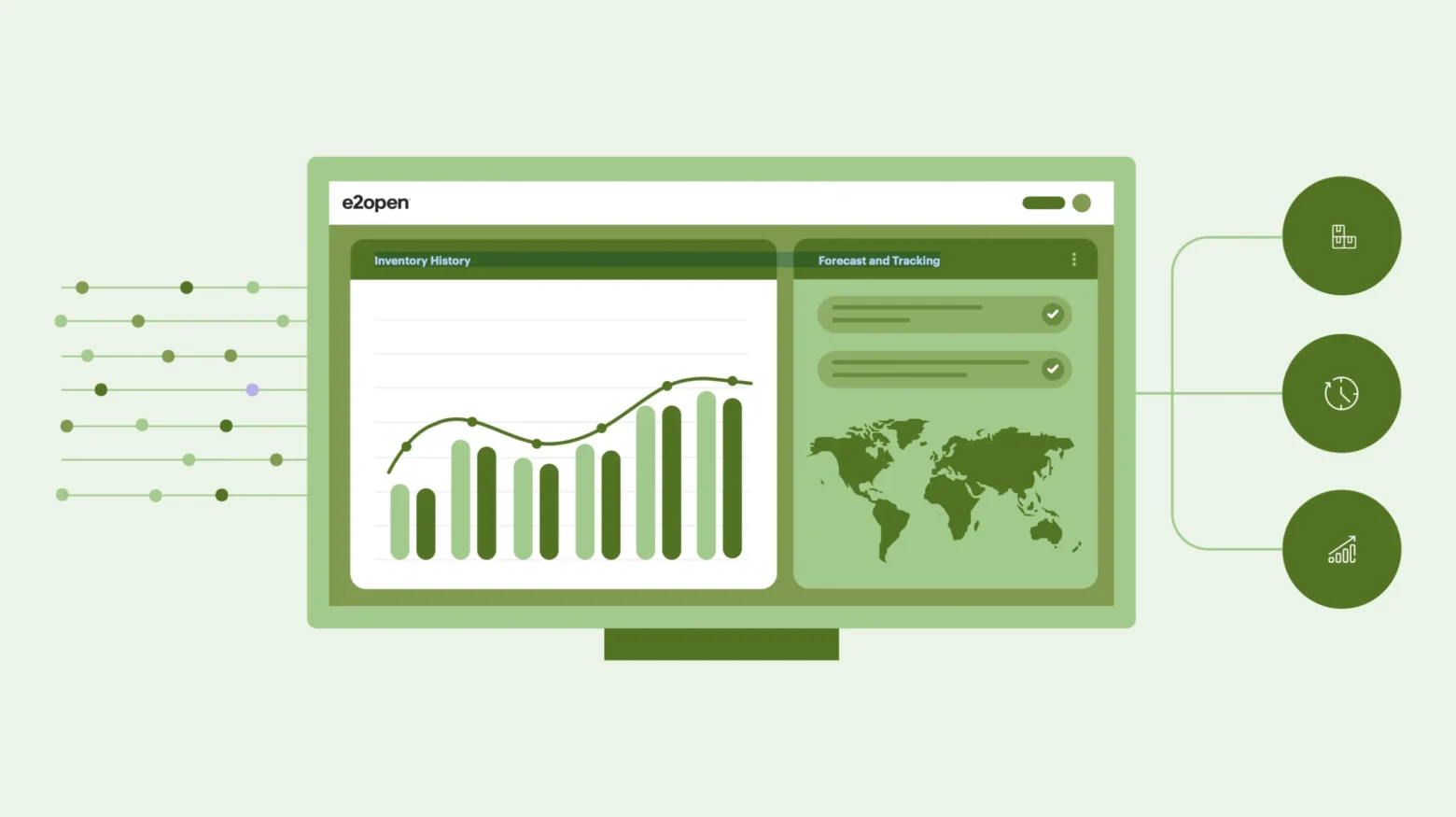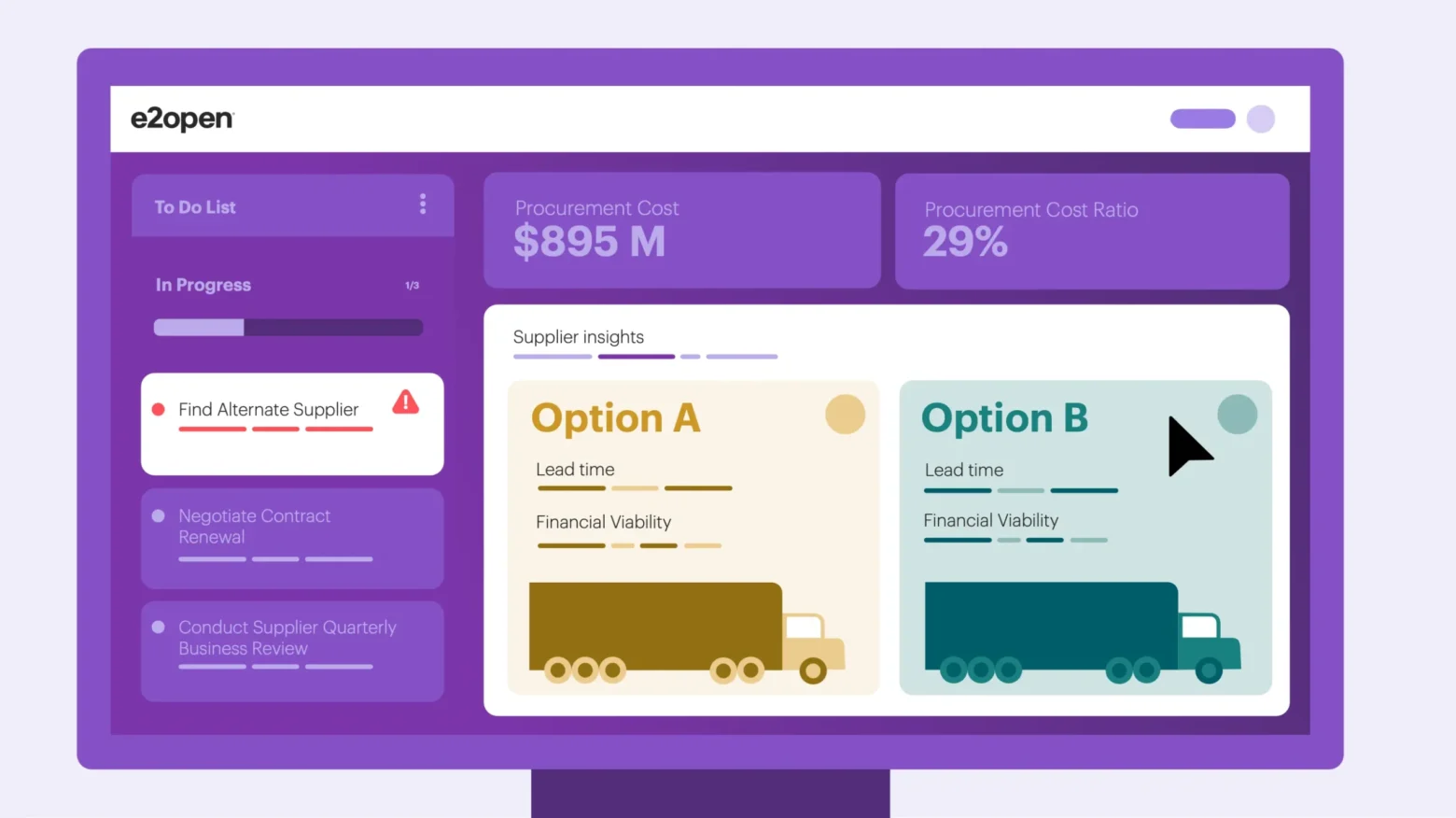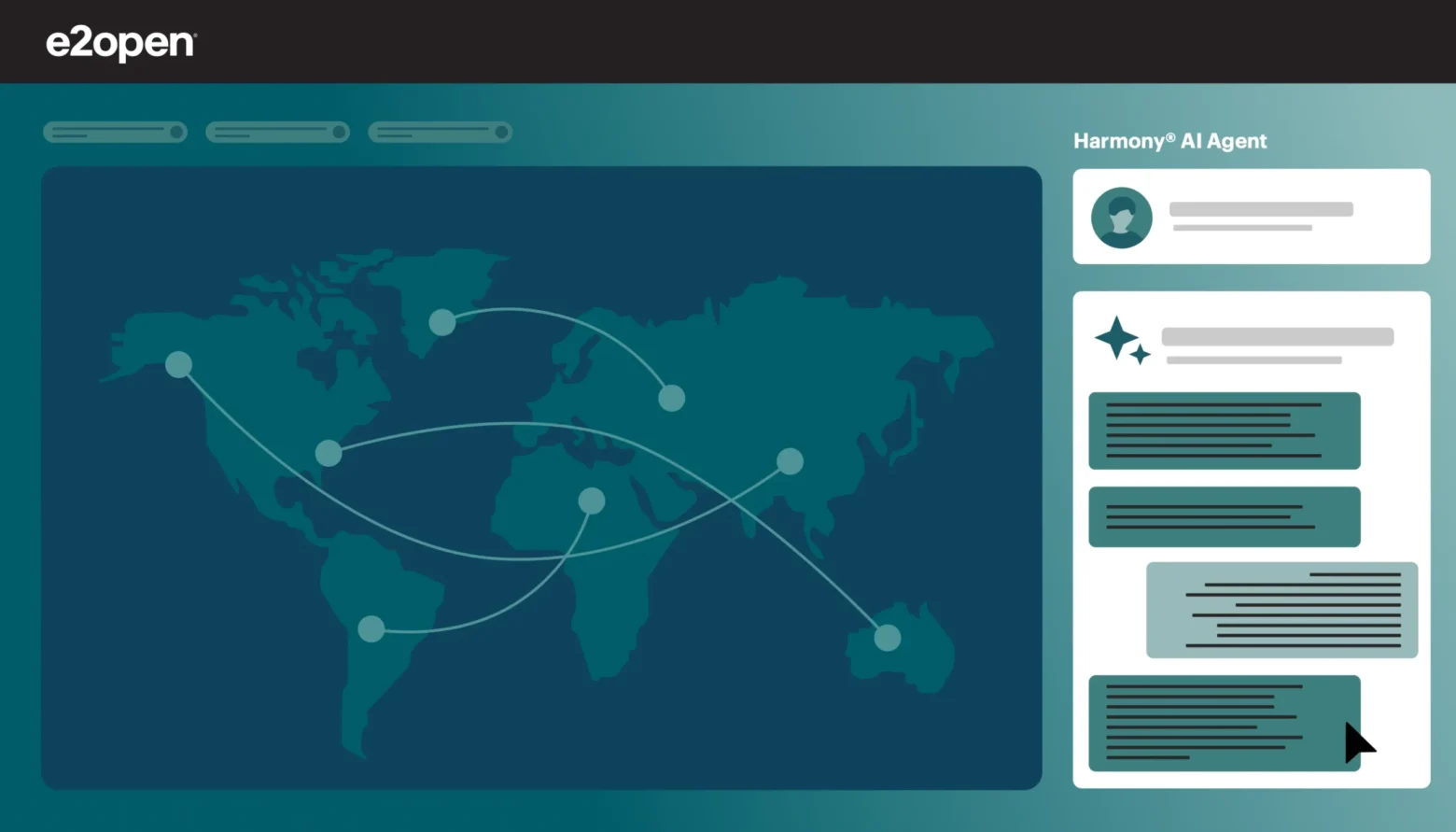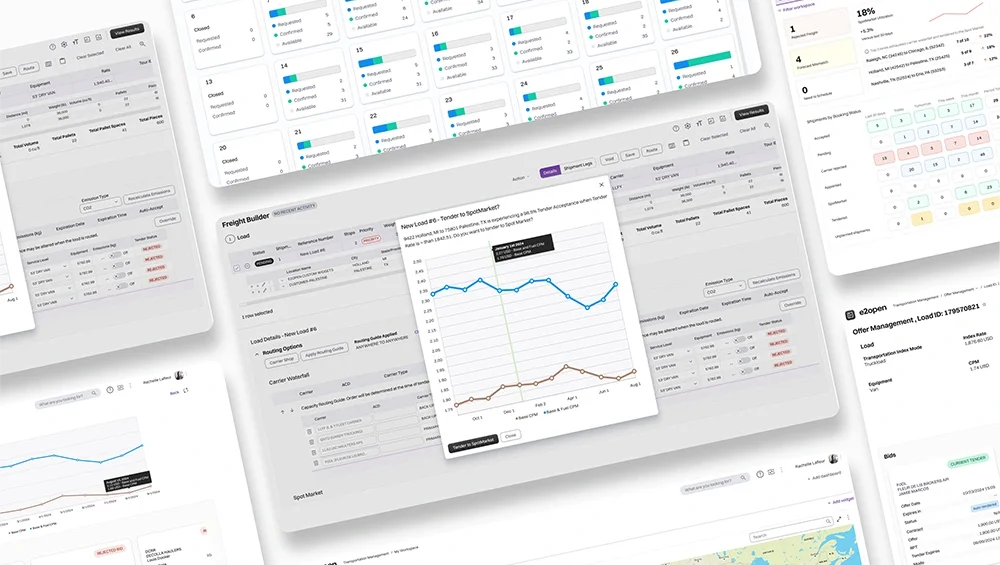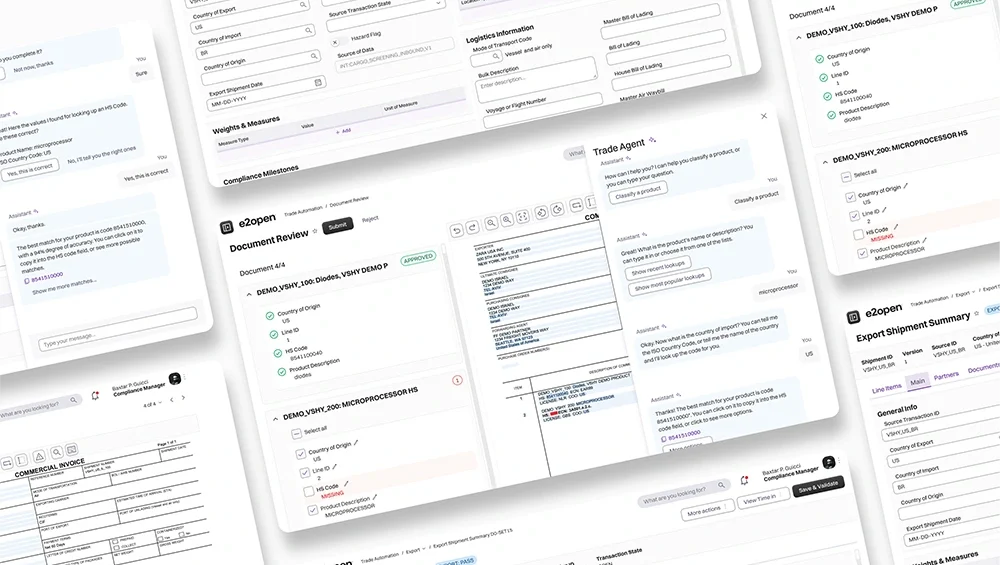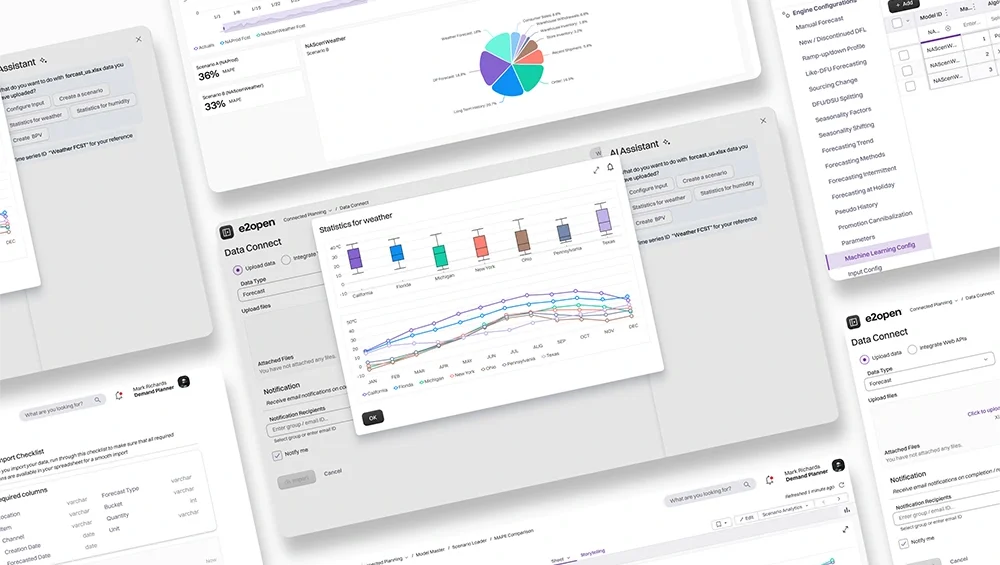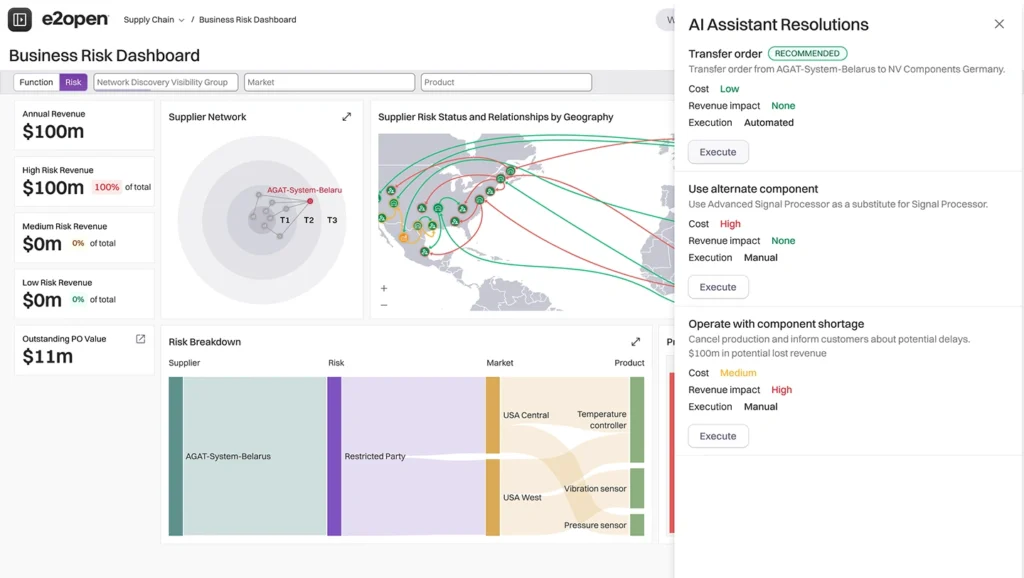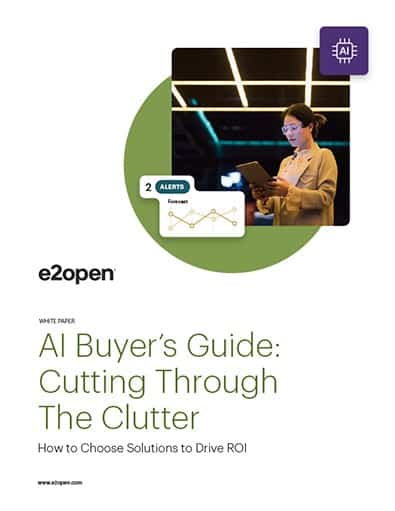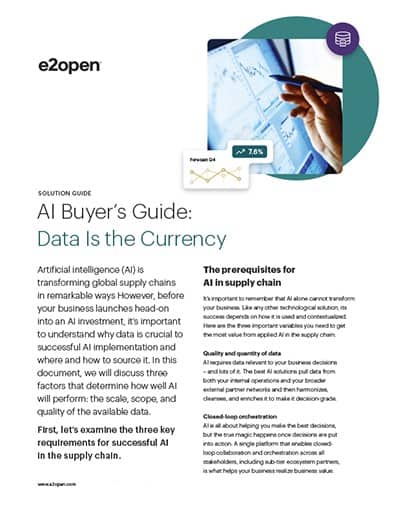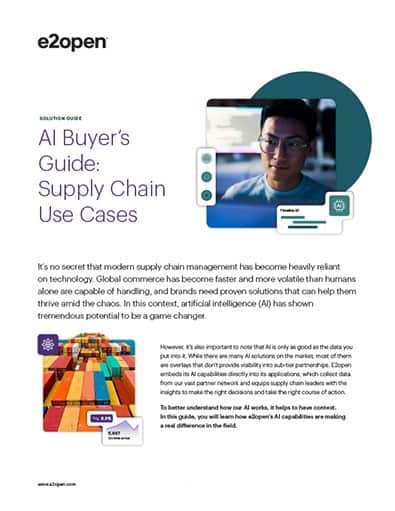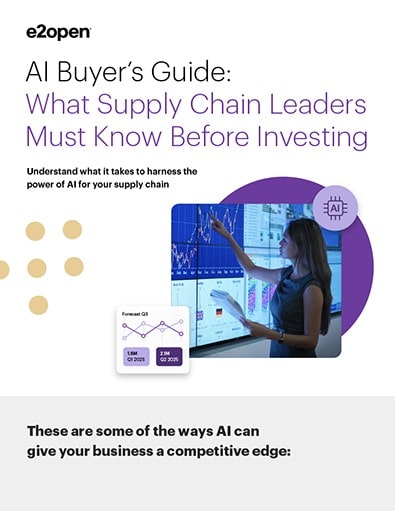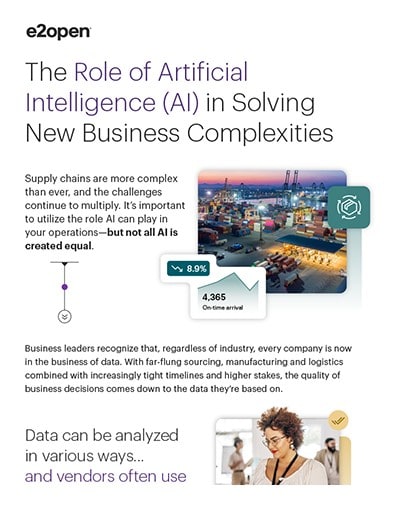Value-Driven Intelligence
Supply chain AI that’s built in,
not bolted on.
With countless AI solutions flooding the supply chain market, it’s essential to separate hype from real impact. As a leader in AI-driven supply chain technology, e2open knows what truly works.

NO MORE USELESS DATA
Over 90% of data is unstructured and unusable.
E2open’s Gen AI makes all data accessible, available, and decision-grade, unlocking hidden value for better business outcomes.
CONTEXT AND KNOWLEDGE
Embedded supply chain intelligence, with context
AI is a commodity—its value comes from application. While most vendors offer basic AI, e2open embeds intelligence, automation, and supply chain expertise to drive real impact.

GO BEYOND GENERIC AI
Upgrade your data, performance,
and decision-making
Maximize the value of your data
AI is only as powerful as the data it uses—focus on insights from your operations and sub-tier partners to drive smarter supply chain decisions. Without high-quality, relevant data, even the best AI can’t deliver meaningful results.

AI without business context is just hype
Invest in embedded AI that understands your processes, so you can make strategic, high-impact decisions that keep you ahead. AI without business context is just flashy tech—only purpose-built AI embedded into your supply chain delivers real value.
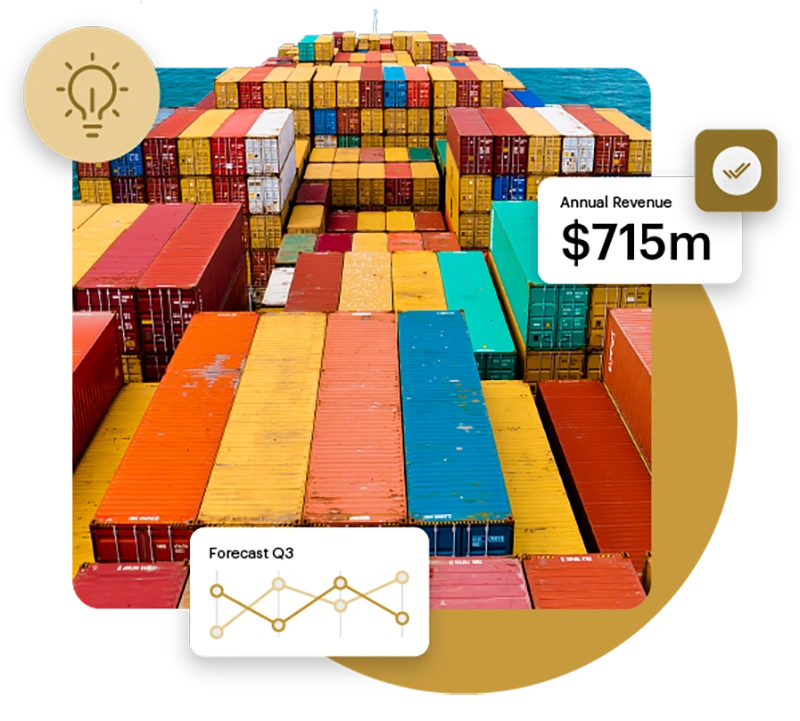
Smarter Decisions, Streamlined Workflows
Ensure your AI solutions don’t just analyze data but drive execution across your supply chain for measurable results. Insights mean nothing without follow-through—your AI should empower decision-making and seamlessly put those decisions into motion.
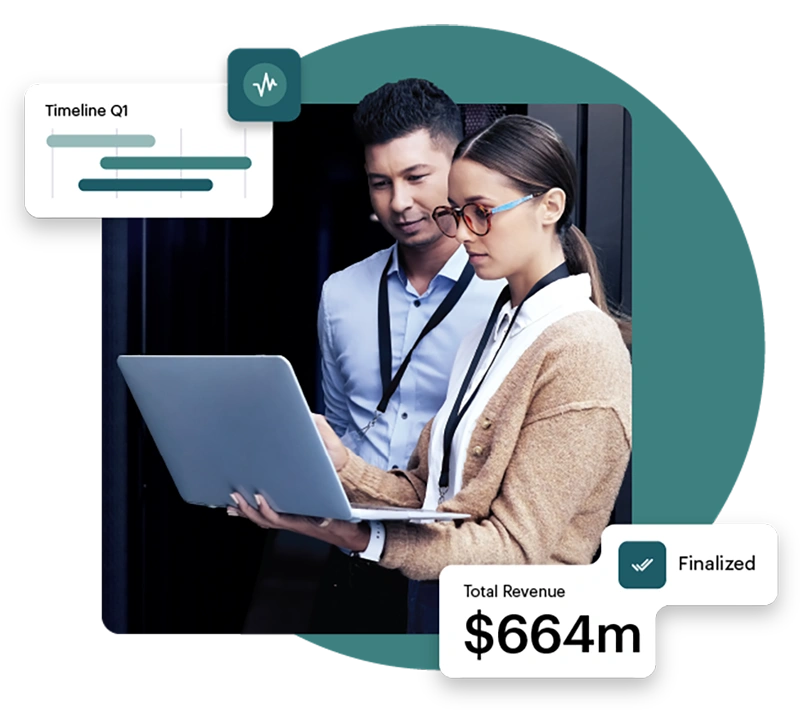



APPLIED AI
AI-driven efficiency
at every level of your supply chain.
E2open’s AI is natively embedded in our core applications, which means it’s purpose-built to integrate into every level of your value chain.
INTEGRATED NEXT-GENERATION AI
More than generative AI:
Access actionable intelligence where it matters most
Find the right supply chain AI solutions for your company
Explore our AI Buyer’s Guide series
Ready for Al that delivers results
—not just predictions?
Unlock the power of your data
and begin taking more impactful action, today.
